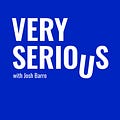Dear readers,
It’s a pretty good week for my conversation with Adam Ozimek, an economist whose recent work focuses on the intersection between labor markets and housing.
Adam is an evangelist for remote work — perhaps in part because he lives near Lancaster, Pennsylvania, the sort of affordable mid-size city within a couple of hours of very major cities that stands to gain residents from the remote work trend — but he also has arguments that the sharp increase in partial or fully remote work is simply very important for the ways it will change how many parts of the economy operate. Here’s what Adam said:
“I think remote work really is a general purpose technology… It's more comparable to electrification. It's more comparable to the invention of the internal combustion engine or automobiles or something like that in the way that it's going to ripple through everything and it's going to have these longstanding big impacts. I'm not saying the aggregate economic impact is going to be bigger than or as big as electrification, but it's that kind of fundamental change.”
There are few places where this effect is bigger than in housing: remote workers want larger homes, they don’t need to live so close to their offices, and they have more flexibility to choose the sort of community they live in. That’s driving all sorts of shifts in relative home prices and changing what needs to be built and where.
I think you’ll find our conversation very interesting. You can find a transcript of the episode and other relevant links at the end of this newsletter.
Speaking of jobs, I think it’s worth looking at the July jobs report out today, and revisiting the question of whether we’re in a recession. The report, showing robust employment and wage growth, is another data point suggesting we aren’t in one, despite the negative GDP print for the second quarter.
But I also want to be clear about why I think it’s important not to jump to the conclusion that we are in a recession. My concern is mainly about the Federal Reserve. I think the Fed needs to keep tightening, yet I’m increasingly hearing talking points from Republicans and some Democrats that imply the Fed should stop tightening.
The implication from Republicans is simple — if the economy has slowed down so sharply that it’s in a recession, why would the Fed need to keep raising rates? If we’re falling into a recession, that should show up in the form of shrinking consumer demand, slowing business investment, and soft hiring — and that, in turn, should translate into much slower growth in prices and wages. If the Fed kept tightening in that environment, it would overshoot and the recession would be a lot deeper and more painful than necessary.
Meanwhile, you have Democrats like Elizabeth Warren urging Powell to take it easy on the rate hikes. She endorses the left-wing version of Voodoo Economics, where instead of raising government revenue by cutting taxes, you ease inflation by increasing federal spending — she cites a federal child-care entitlement, the most recent version of which was structured in a way to sharply increase the cost of child care, as an example of a policy that would bring inflation down.
There is a reason to tell yourself these stories: rate hikes are not fun, and it’s always tempting to look for excuses to avoid them when you are in power. Talking about already being in a recession only strengthens the misguided argument for letting monetary policy run loose.
But the flip side of this strong jobs report is that it contains more indications that inflation pressures are not easing. Wage growth wasn’t just strong in July; it was also revised up for June, running above 5% in both months. That’s good news for workers; the real value of their paychecks wasn’t being compressed as much as we thought. But it’s also more evidence that underlying inflation pressures are not easing as much as they need to be — as Jason Furman puts it, those levels are historically consistent with inflation trends over 4%.
Gasoline prices are coming down, which is great — they move around for reasons outside the Fed’s control. The cost pressures on various other commodities are also easing. Headline inflation was likely quite low in July. But just as the spike in gas prices was making the underlying inflation trend look worse than it actually was, the dip is now making it look artificially good. If we continue with rates where we are, inflation will certainly fall from the recent sky-high levels, but it won’t settle down at a level that the public considers normal and acceptable. The Fed still has more economy-cooling work to do.
Back in January, it was common to see liberals assert that inflation wasn’t a big deal, that the job gains are what really matters, that the media just gets people hyped up about gas prices, and so forth. Since then, I have been pleased to see Democrats shed their denial and start taking inflation seriously, both as an economic and a political problem. The party let Build Back Better die and they came back with a smaller plan that’s more plausibly designed for this inflation environment — deficit reduction, investments in energy capacity, pharmaceutical price controls, no grandiose new social programs.
That said, the Biden administration is probably about to do at least one unwisely inflationary thing: extend the student loan repayment pause and forgive some substantial fraction of outstanding student-loan debt. The pause constitutes fiscal stimulus at a $60 billion annual rate at a time when we need contraction, not stimulus; any debt forgiveness will be added stimulus on top of that. It would be a bad thing if recession talk became more of an excuse for Democrats to enact other inflationary policies at the worst possible time.
And that’s why I’m wary of the recession talk.
Here are some links related to the podcast conversation with Adam:
Click here for a transcript of this episode.
Adam cited this paper by economists Jonathan Dingel and Brett Neiman that says 37% of jobs in America could be done entirely remotely. Here’s a helpful Reuters feature on their work.
Adam also cited economist Nick Bloom’s analysis of worker preference for remote, hybrid, and full-time in-person work.
I referenced this data from key-card company Kastle about the fraction of employees badging in to the office across different metropolitan areas, and this piece from Matt Yglesias on Chicago’s specific troubles.












Adam Ozimek On Jobs, Remote Work, and Housing